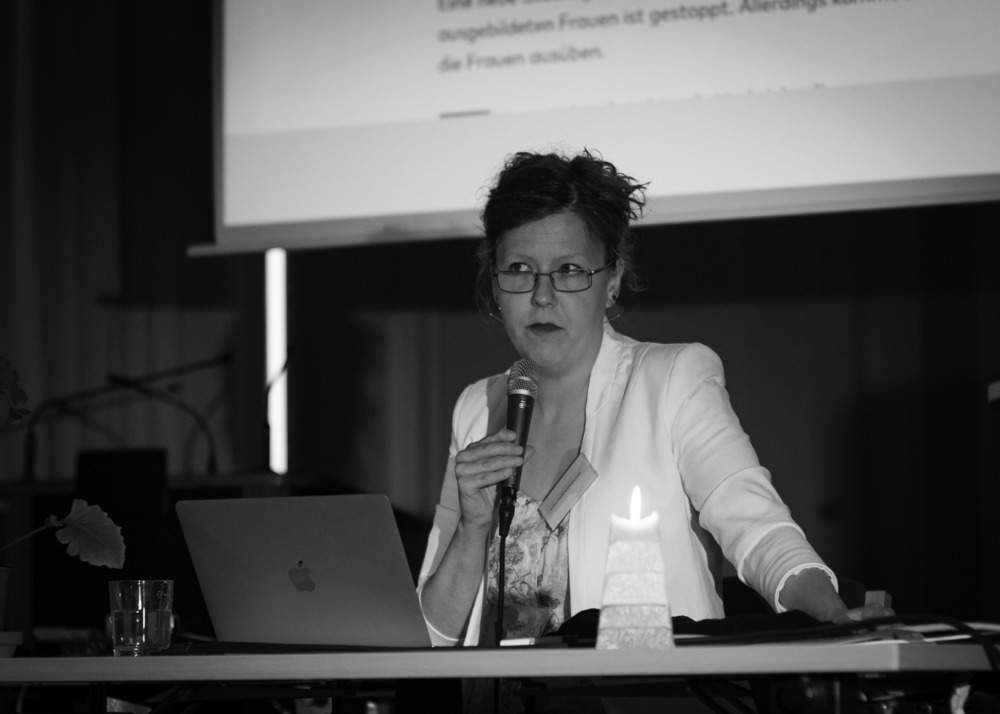
UTOPIA MACRAMÉ
first performed on June 15, 2019
WestWerk, Hamburg, Germany
performed once in 2019
FRAUKE AULBERT
Hamburg, Germany
848555237f848555237r848555237a848555237u848555237k848555237e848555237.848555237a848555237u848555237l848555237b848555237e848555237r848555237t848555237@848555237g848555237m848555237x848555237.848555237d848555237e
stimmkuenstlerin.de
UTOPIA MACRAMÉ
FRAUKE AULBERT
“Utopia Macramé” is a very richly elaborated performance in form of a lecture, containing recited, visual (present and projected), and musical material, as well as interactive tasks with the audience. This pattern of alternating detailed parts and open forms allows me to lure my audience in, and then suddenly drop all reliability, and entirely change the direction of the ambiance. “Utopia Macramé” is an experiment to create an emotional roller coaster.
“Utopia Macramé” has a positive outlook on coming times, containing many wishes I have for the future. In an historic review from 2049, in which I play the half-personal, half-fictional role of the sociologist and anthropologist Dr. de la Prairie (which is Aulbert in pseudo-French translation) recounts the “past,” including the end of intensive animal farming, Trump’s resignation, Christmas as a tree-planting rather than present consuming holiday, and, as the core of “Utopia Macramé,” a return to matriarchy as the form of society with is the most social. I show evidence of matriarchies dating back to early history and also pictures of matriarchic systems existing today in 2019, which are plenty.
Macramé stands for the self-made, the handicrafted, a throughline in this performance. It is an example of creatively forming the world around us, instead of consuming things and ideas from the media. Many of the presented parts therefore deliberately are slightly amateurish, or on the edge. A familial atmosphere is created. There is a plant and a rainbow-colored candle on the table, which is lit as the first action of the performance.
During the performance we practice forms of social encounter: Gender equality and humanness, respect for oneself and respect for others, for all kinds of beings. We greet and see each other, we sing together, we laugh together. The rather funny parts at the beginning are counterpointed by intensity, for example a film containing scenes of intensive animal farming. It is the real “past”—the present—and is very hard to watch. The song “Invocation of the Venus from Dolni Vestonice,” is the one “highprofessional” moment and, containing very extreme vocal work, very impressive. Some longer, rather scientific parts include interesting material, but are deliberately a bit too long and get away from the easy consumption of the piece.